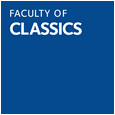Final Examination: Honour School of Classics and Modern Languages

Latin inscriptions and Roman letters. (Image credit: Shutterstock).
For Classics and Modern Languages finals you take eight or nine papers, including three or four in Classics, and four or five in the modern language.
For your Classics subjects, you can choose from a wide selection of the options available in Classics (Honour School of Literae Humaniores). Brief descriptions of the papers specific to Classics and Modern Languages can be found below.
Detailed descriptions of the papers on offer, and information about teaching provision, can be found in the course handbooks available on our website here. However, please note that handbooks are updated each year, and that the handbooks for the years in which you would sit the qualifying examination, Prelims, and Finals may not be available yet.
Please note that changes may be made to course syllabuses from year to year, and that not all papers may be available in any given year.
Special Options in Classics and Modern Languages
Petrarch was the major cultural and intellectual figure in mid‐fourteenth century Italy, and his pioneering role in ushering in the new age of Humanism and the Renaissance made him famous throughout Europe. The works which articulated his new ideas and established his reputation were mostly in Latin (the vernacular poems of the Canzoniere and Trionfi represent only a small part of his output). Sensing more accurately than his predecessors the distance that separated his time from the classical past, he was the first writer to revive major classical genres such as epic (Africa), biography (Vita Scipionis), the dialogue (Secretum) and letter‐writing (Epistulae Familiares). Petrarch’s Latin works shed invaluable light on his views on history, morality, the role of the intellectual, literary creativity and imitation, as well as helping to understand more fully his vernacular poetry.
The dramatists of Greece and Rome had an enormous influence on the development of drama in Europe from the Renaissance onwards. In the middle of the sixteenth century, French writers strove consciously to imitate the dramatic works of the ancients, and their efforts led eventually to the kind of tragedy practised in the seventeenth century by Corneille and Racine. Both these dramatists negotiate ancient models in different ways from play to play. This paper allows candidates to study individual dramatists in their own right but also to compare the ancient and French dramatists.
Germany, perhaps more than any other country in Europe, has had a lively and often rather tormented relationship with Ancient Greece. Candidates will be able to study those dealings in an area of particular importance: tragedy. The German texts, from Goethe to Christa Wolf, show an extraordinary and discordant variety of responses to both the theory and the practice of tragedy in Greece. Antigone is chosen for special study, Hölderlin’s radical treatment of Sophocles’ play being the best possible illustration of the vitality and modernity of classical tragedy.



